Best key finder in 2021: AirTag vs. Tile vs. SmartTag vs. Chipolo
The battle for the best key finder is more heated than ever as Apple and Samsung are now part of the mix. But as impressive as the AirTag and SmartTag are, respectively, we still think the Tile Pro is the key finder to beat.
You can understand why those two tech giants want to muscle in on this category. The best key finders have proven their worth by helping users pinpoint the location of lost items like car keys from a smartphone app.
Choosing the right key finder isn’t always as straightforward, though, as a lot of devices boasting similar features are vying for a place on the end of your keychain. We’ve tested a lot of different key trackers, and we’ve discovered that some are better equipped for the job than others. Sometimes, it’s best not to just turn to the cheapest key finder available.
Here’s how we rank the best key finders out there, now that we’ve taken the new Apple and Samsung trackers out for a spin.
What is the best key finder?
Even with the stepped-up competition, the best key finder for keeping track of easy-to-lose items remains the latest version of the Tile Pro, which features improvements that make a great device even better. There’s a very loud alarm, and the Tile Pro’s range now extends to 400 feet. Based on the Tile Pro, Tile continues to set the bar for other key finders.
As for wallets or purses, your best bet is the redesigned Tile Slim. It’s got a slender design to slip right inside a wallet and an impressive range that makes it easier to track down missing items. Meanwhile, the latest Tile Mate feels like a step back from previous models, so we’d suggest the Chipolo One as an alternative.
If you’ve got a Samsung Galaxy phone, you’ll want to consider the Galaxy SmartTag, as it matches the Tile Pro’s amazing range. And iPhone owners are going to want to grab the AirTag. It’s a cinch to set up, and if you have an iPhone 11 or later, the Precision Finding feature works very well.
The best key finders you can buy today

Tile continues to make the best key finders, and the latest Tile Pro ($35) is a perfect illustration of why. Tile increased the range on the Pro — in testing we regularly stood more than 200 feet away from the tracker while keeping a connection between our keys and out phone — and its loud alarm is still audible at a great distance. A replaceable battery was introduced in last year’s model, and makes a welcome return here to this key locator.
The Tile Pro — and any Tile tracker — is especially handy if you have a Nest device at home like a Nest Mini or Nest Hub. Google added Tile support to Google Assistant, so now you can ring your Tile tracker with just your voice. We tested the Pro when it was available in black and white only, but Tile has since added other color options, taking a page out of Chipolo’s book.
If you need a key finder with a wide range and reliable performance, this is the one to get, though you can skip the $3-a-month Tile Premium service until the still-in-beta Smart Alerts feature more effectively informs you that you’ve left key items behind.
Be sure to check prices before you buy a Tile Pro (or really, any key tracker). These kinds of gadgets go on sale frequently, and you can often find a Tile Pro for less than its $35 asking price — and sometimes less than what you’d pay for nominally less expensive trackers.
Read our full Tile Pro (2020) review.
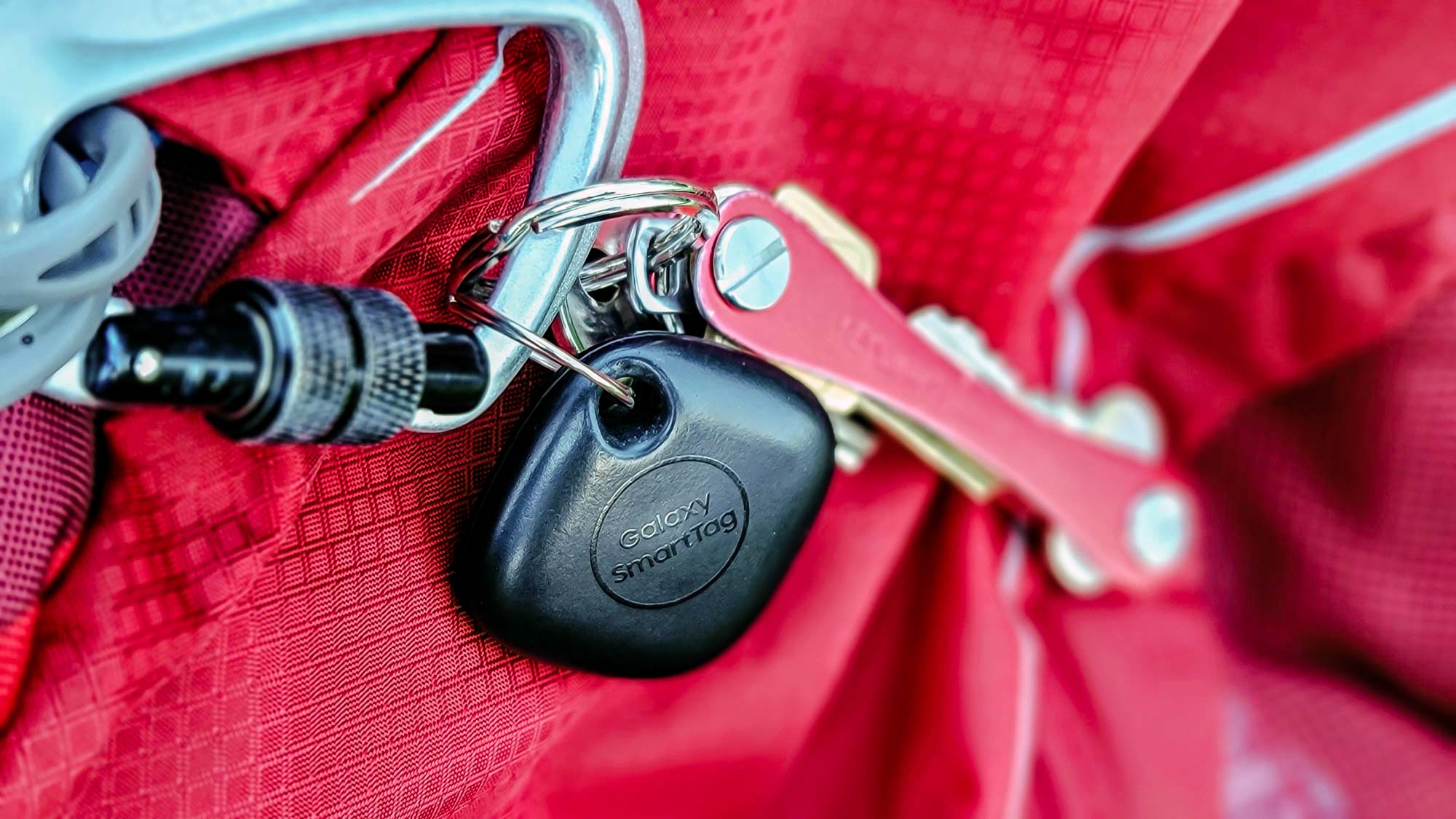
Owners of Samsung phones looking for the best key finder should consider the Samsung Galaxy SmartTag alongside the Tile Pro. Like the Tile Pro, the SmartTag fared well in our range testing, as we were able to stay connected to our keys from up to 225 feet away. We can also point to some real-world successes with the SmartTag, as our tester was able to find keys that were left behind using last-seen data from the companion SmartThings app.
There’s a unique component to the SmartTag that other key finders don’t boast. Because the key finder connects to Samsung’s SmartThings app, you can use it to automate some smart home features with a press of the tracker’s button. Be aware that this version of the SmartTag doesn’t support Ultra Wideband connectivity for more accurate tracking like Apple AirTag does; for that feature, you’ll need to pay up for the SmartTag Plus, which costs an extra $10.
SmartTag compatibility is limited to Samsung Galaxy phones running Android 8.0 or later, so if you’ve got another handset, you want to consider some of the other best key finder options. But Samsung’s smart tracker is a perfect companion to devices like the latest Galaxy S models.
Read our full Samsung Galaxy SmartTag review.
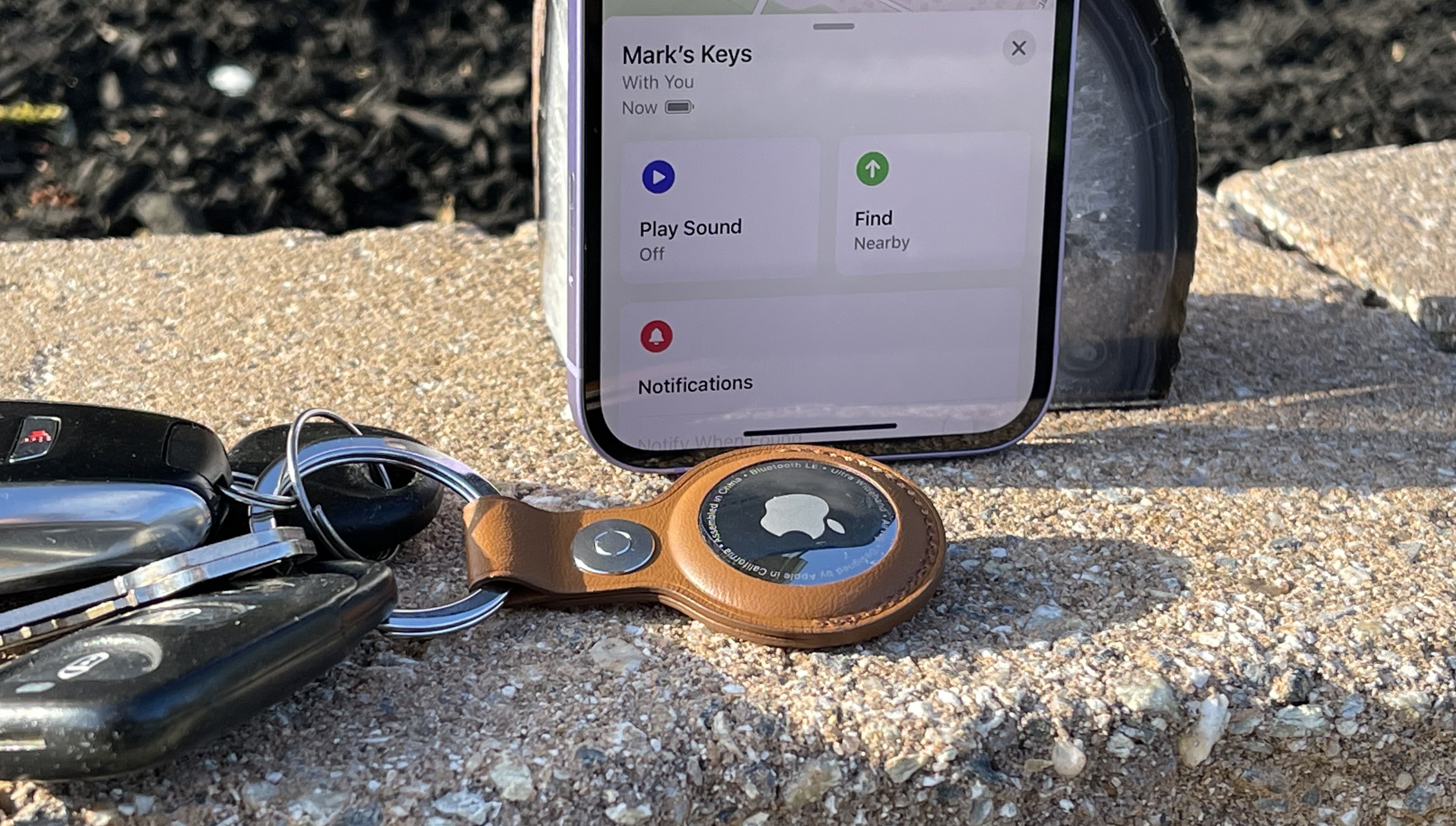
If you’ve got an iPhone, especially one of the more recent models, you’ll want to try Apple’s AirTag. This key tracker pairs with your iPhone over Bluetooth to help you track down lost items in the iPhone’s built-in Find My app. If you’ve got an iPhone 11 or later, you can tap into the Precision Finding feature, which uses the U1 Ultra Wideband chip in newer Apple phones to provide more detailed directions on finding lost items.
Precision Finding is impressive, but perhaps the best thing about Apple’s AirTag is how easy it is to set up. Our AirTag paired easily with an iOS 14.5-powered iPhone, and the Find My interface is a pleasure to use.
Privacy features on AirTag needed some fine-tuning initially, as alerts that an unauthorized AirTag is trying to track you are slow in coming. (An over-the-air update just released by Apple promises to fix that.) AirTag also lacks some of the functionality you’ll find in the other best key finders like two-way find features for locating a misplaced phone. Still, AirTag brings a handsome design and an iPhone-friendly approach to the world of key trackers.
Read our full Apple AirTag review.
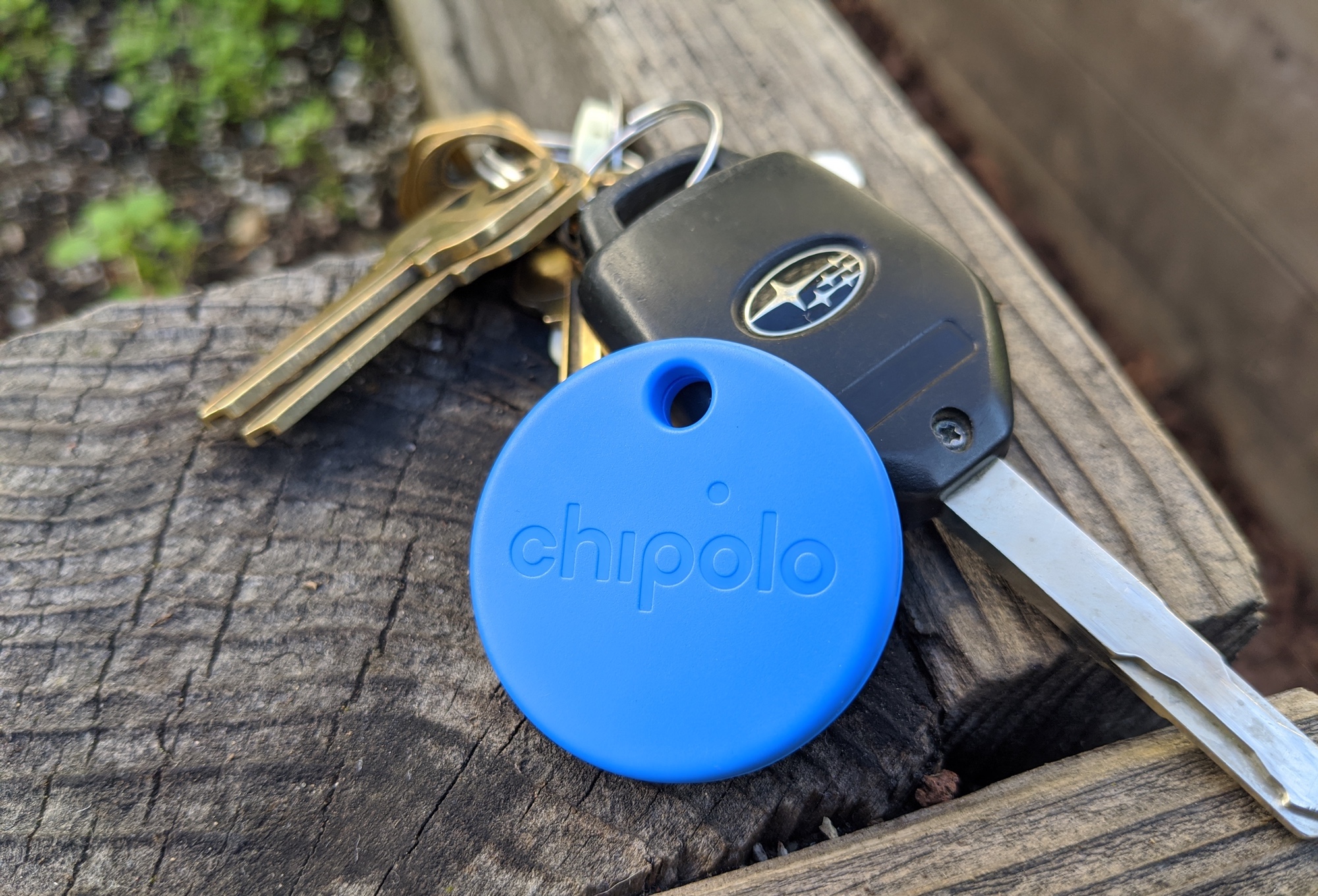
The Chipolo One key finder continues Chipolo’s proud tradition of producing trackers with very loud alarms, making it easy to find the item you’ve misplaced. But the Chipolo One introduces an even better feature to the mix — out-of-range alerts that buzz your phone when you’ve left an important item like your keys behind.
All you have to do to get out-of-range alerts is toggle the feature on in Chipolo’s app. (That’s a contrast to Tile, which only includes such alerts as part of its Tile Premium subscription service.) When you’ve gone a certain distance from your Chipolo One, you’ll get a notification on your phone and a loud beep or buzz. In our testing, Chipolo’s out-of-range alerts appeared reliably and usually quick enough for us to turn around and retrieve our keys before we’ve gotten too far.
The range of the Chipolo One is a little disappointing, as we had a hard time keeping our phone connected to the key finder beyond 50 feet. That means the Chipolo One is best suited for finding in a small area like your home as opposed to more spread out locations. Still, at $25, the Chipolo One costs less than the Tile Pro and has better features than the similarly priced Tile Mate. We think its the best key finder alternative if you don’t want to pay up for the Tile Pro.
Read our full Chipolo One review.
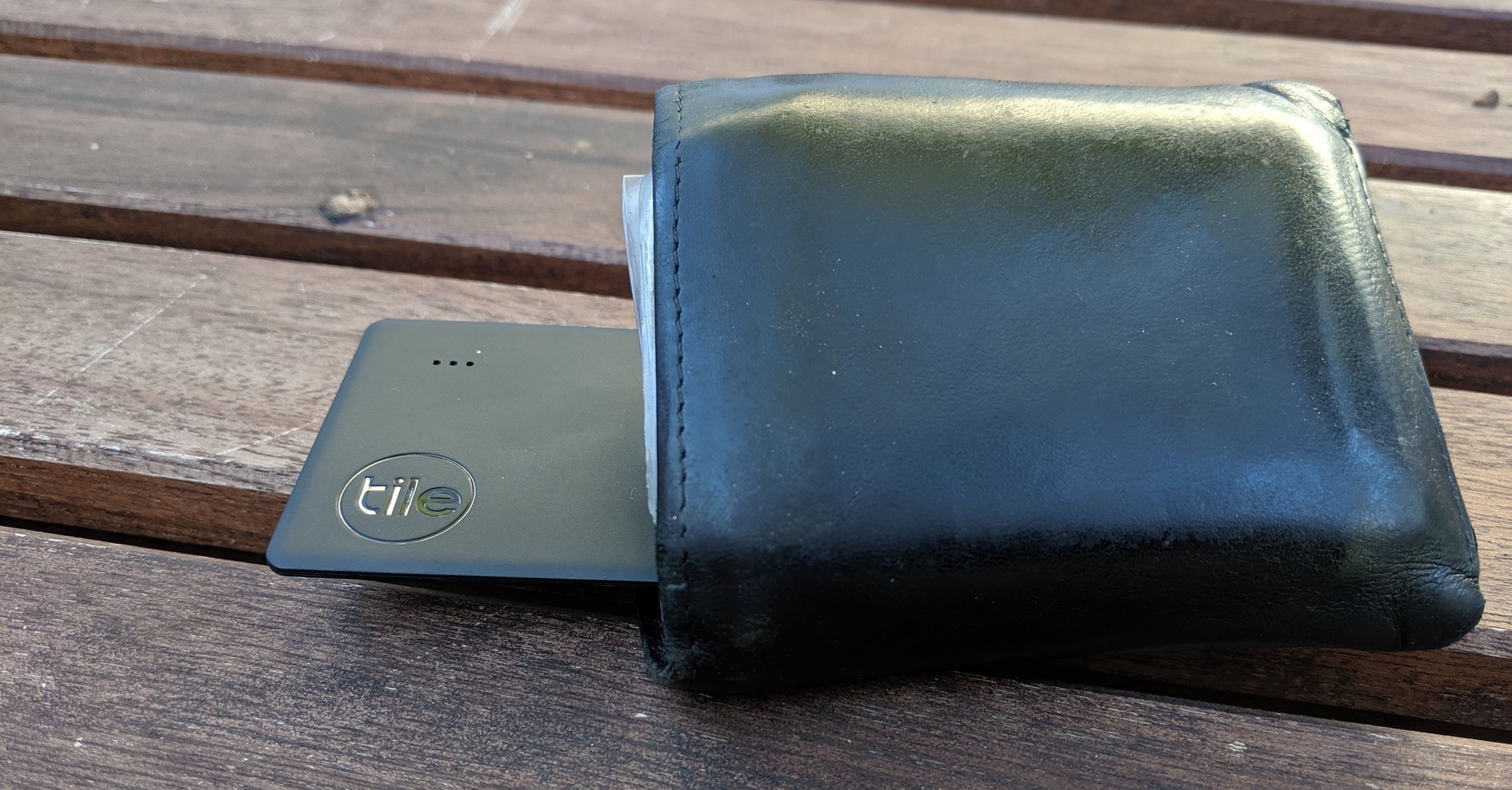
Past versions of the Tile Slim were easy to overlook. The design of this tracker aimed specifically at wallets didn’t really complement the object it was meant to track, and its performance was only so-so. Tile made some notable improvements with the current version of the Slim, though, which is why it makes our best key finder list.
The Tile Slim is the same size as a credit card, so this key locator slips easily into a wallet, purse or billfold. It’s got a loud alarm, making it a snap to find your wallet when it’s misplaced. And the range proved very extensive in our testing, if a little inconsistent at times. Still, with all the positive changes that Tile has made to the Slim, there’s now no better device for making sure your wallet or purse is always nearby.
Read our full Tile Slim review.
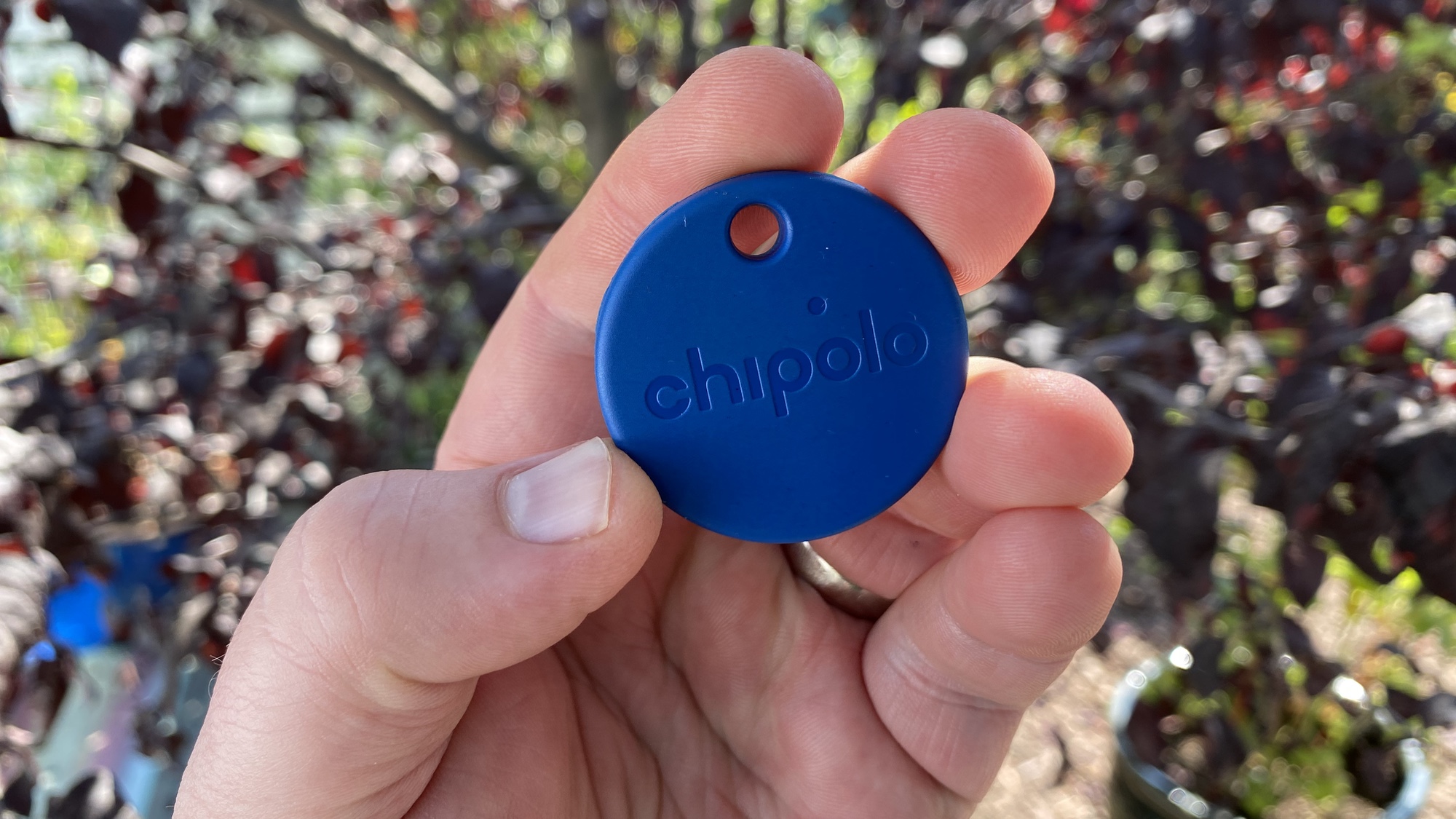
The Chipolo One Ocean Edition mirrors the standard Chipolo in terms of features, but offers at least one key difference — it’s made from plastic pulled from the ocean and converted into the device’s polypropylene plastic case. It comes in a dark blue color appropriately called Ocean Blue.
You’ll pay $30 for the Chipolo One Ocean Edition, which is $5 more than the standard Chipolo One. But $1 of every purchase is donated to Oceanic Global, an organization that promotes ocean conservation efforts. So you’re paying extra not only to remove plastic from the ocean but also to support ecological causes.
Otherwise, this offers the same features as the Chipolo One, and that’s a good thing, since that’s one of the best key finders outside of the Tile Pro. In our testing, we were able to stay connected to the Chipolo One Ocean Edition from 200 feet away, and while the out-of-range notification feature was a little flakey, those alerts that you left your keys behind are extremely valuable and included with the price of your Chipolo. Get the Chipolo One Ocean Edition if you want a solid key finder that also tries to make a positive impact on the planet. (And if you’re having trouble finding it at online retail sites, you can always buy the Chipolo One Ocean Edition directly from Chipolo.)
Read our full Chipolo One Ocean Edition review.
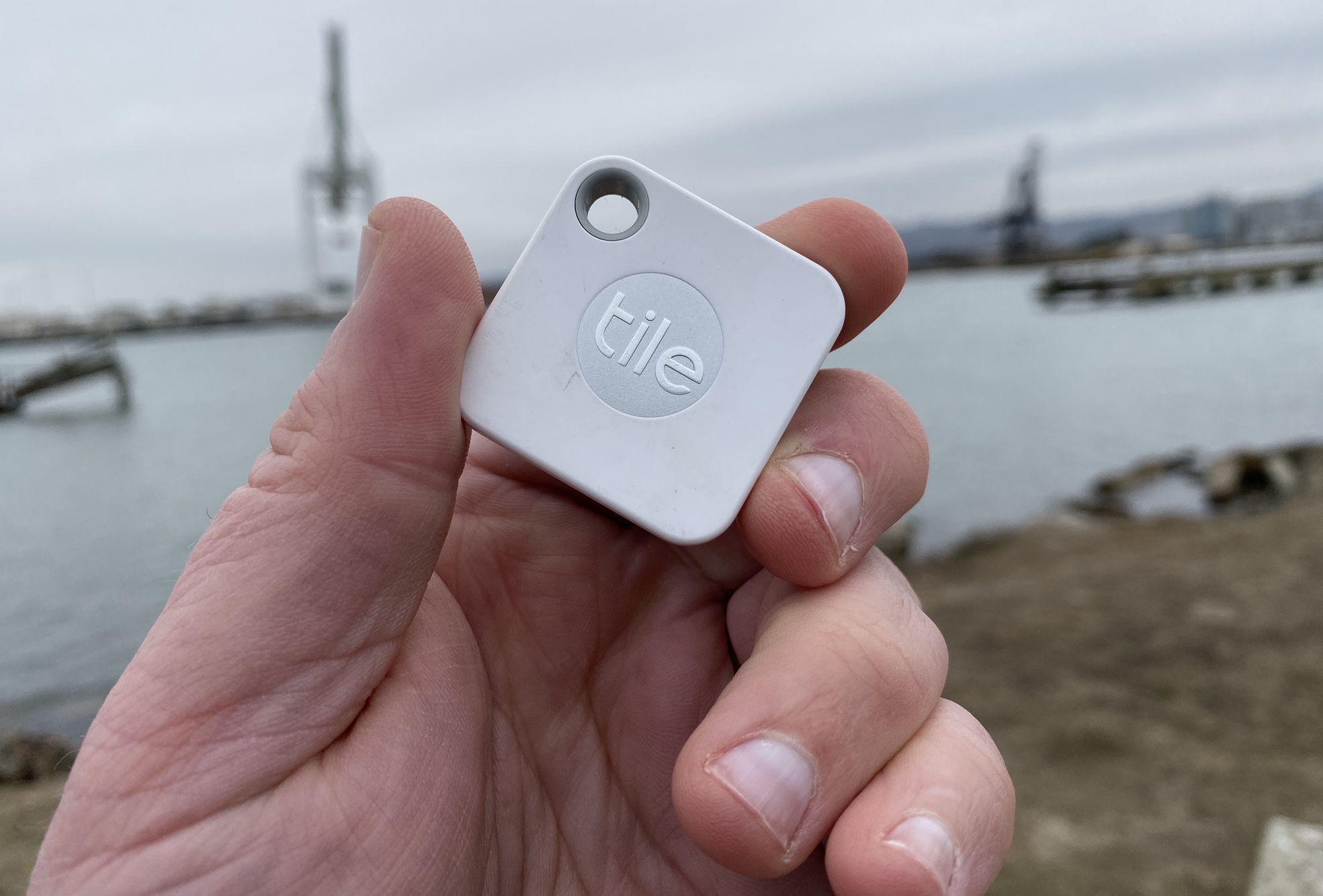
The Tile Mate used to be a compelling alternative to the Tile Pro, as it allowed you to spend $10 less on your key finder, while making only minimal tradeoffs in range and alarm volume. But the range on the new Tile Pro is so much better while this year’s model of the Tile Mate performed similarly to last year’s version, despite Tile’s promises that range had increased. As a result, we think it’s worth paying the extra $10 for the $35 Tile Pro to get the best key finder.
The latest Tile Mate has a replaceable battery, the same as the previous version. But we had trouble opening the back of the key finder to replace the battery. That’s another reason we have a hard time recommending the Mate these days, which hasn’t seen the same gains as Tile’s other trackers.
Read our full Tile Mate (2020) review.
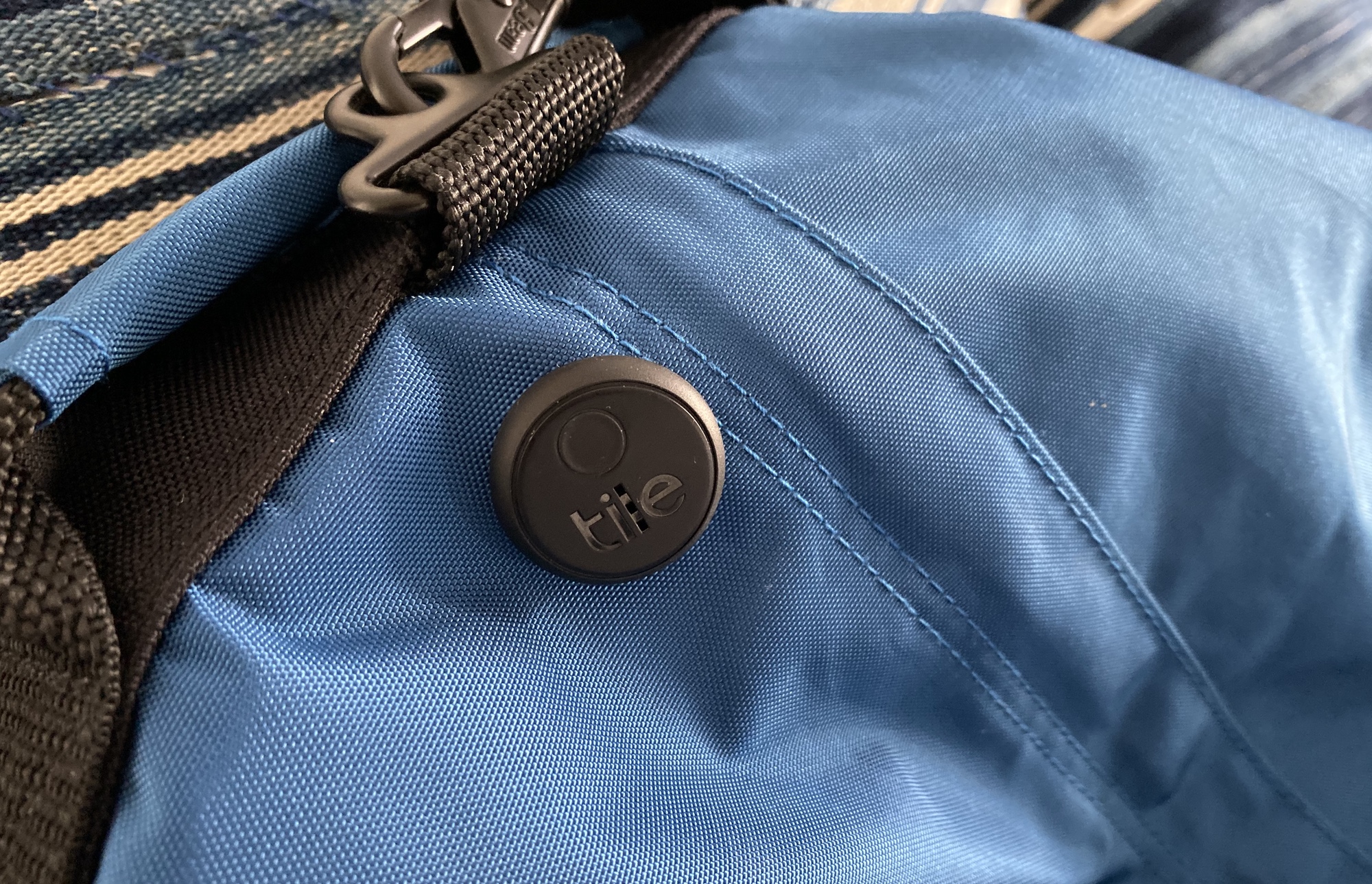
While the Tile Pro and Tile Mate can latch on to keys, collars and anything else with a hook or ring, the Tile Sticker can attach to just about everything.
Tile’s smallest tracker comes with an adhesive back developed by 3M; stick it to any surface, and it should remain in place for three years (which, coincidentally, is how long the non-replaceable battery should last). The idea is that you can use the Tile Sticker to attach and track items like laptops, passports and luggage which might have difficulty staying attached to other trackers.
The Tile Sticker benefits from a compact design, but that comes with a lot of compromises. Its alarm is difficult to hear, and the range isn’t as good as what you get from the Tile Mate or Tile Slim. Also, the device performed erratically in our testing, suggesting that Tile needs to work out some of the kinks before this product is up to the company’s high standards and ranks among the best key finders.
Read our full Tile Sticker review.
How to choose the best key finder for you
Here’s the criteria to keep in mind when you’re shopping for a key finder.
• Connectivity and range: The majority of the devices in our best key finder rankings connect to your phone over Bluetooth. That generally means ranges of 200 feet or so, though in our experience, many trackers top out at 100 feet. (That’s just as well, as beyond a certain distance, it’s hard to hear the alarm anyhow.) The Tile Pro is the exception, with a range topping 200 feet in our testing.
But range is about to become an issue now that Apple and Samsung offer key finders that use Ultra Wideband tracking. That not only promises more precise tracking data — and in the case of the AirTag, it delivers. (We’re still testing the Galaxy SmartTag from Samsung.)
• Alarm Sound: Check the decibel rating for the key finder. You’ll want a good loud signal of at least 80 to 85 decibels so that you can hear your key finder over any ambient noise. In our testing, we’ve been impressed by the loudness of the Tile Pro as well as the Chipolo One.
• Other Features: Consider key finders that have two-way finding features, where you can press a button on the key finder to track down your phone. Some key finders also offer geofence features, where your phone will get an alert if your keys are ever out of range — the Chipolo One’s out-of-range alerts are particularly impressive if you prize this capability.
• Battery Life: Look up how long the battery will last on your key finder. If it’s a replaceable battery, count on about six months, though the latest Tiles with replaceable batteries promise a year’s worth of battery life and Chipolo claims its new key tracker will go two years before you need to swap out a battery. Non-replaceable batteries should also last a year and offer a clearly defined replacement program for when your device is running low on juice.
• Tracking Multiple Items: Many of companion apps for the devices we’ve reviewed here support multiple trackers, so that you can keep tabs on more than just one item. (You can track a purse, too, or a wallet, in addition to your keys.) Some products, like Tile, even let you share your tracker with another user, so that both of you can pinpoint the location of your keys. (Tile Premium gives you the ability to share your Tile tracker with unlimited users.)
• Price: The average key finder costs between $20 and $30. A few, like the Tile Pro, cost $35, but offer longer range than standard key finders.
You’ll pay up for key finders with Ultra Wideband connectivity. Samsung’s SmartTag Plus costs $40. The AirTag costs a little bit less, at $30.
You’ll also want to consider compatibility. The Bluetooth-based Samsung Galaxy SmartTag will just work with Samsung’s phones while the SmartTag Plus works with a more limited selection of devices. (The Galaxy S21 Plus, Galaxy S21 Ultra, and Galaxy Note 20 Ultra have the necessary Ultra Wideband connectivity.) Similarly, to get the most out of Apple’s AirTag, you’re going to need an iPhone 11 or later (excluding the 2020 iPhone SE, which has no U1 Ultra Wideband chip.)
How we test key finders
We put every key finder we review through a series of tests. To test the volume of the alarm, we bury the key finder in a clothes hamper filled with laundry and see how far we can walk away before the alarm becomes inaudible. We also check to how long the alarm sounds before shutting off.
To test range, we go to a public park and leave the key finder behind. We check every 10 feet until we lose the signal or can no longer hear the alarm. We also take note of how quickly the key finder re-establishes a connection with our phone once it’s back in range. If a key finder promises a digital leash feature, we walk away, taking note of how long before we receive an out-of-range notification on our phone.
With some key finders now offering ranges beyond 100 feet, we also go to a local football field and check ranges on those trackers.
We consider the size and shape of each key finder. We also look at the ease of inserting a new battery into those devices with replaceable batteries; if the battery can’t we replaced, we consider whether the key finder maker has a replacement program in place.
We also look at the design of the companion app for each key finder, and consider additional features such as two-way finding capabilities.
For all the latest Technology News Click Here
For the latest news and updates, follow us on Google News.
